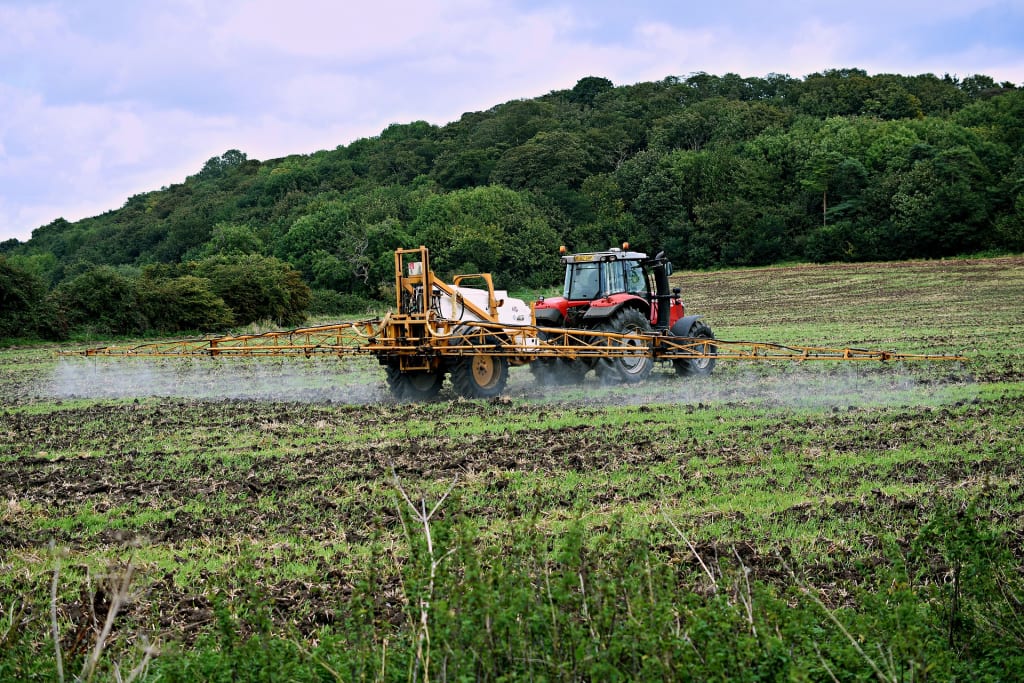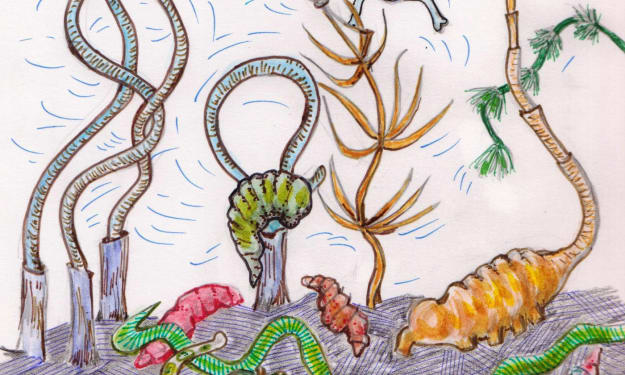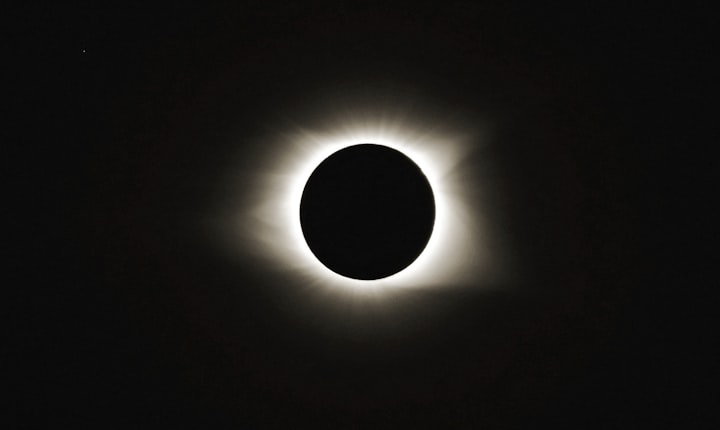How Do We Live in an Anti-Ecological Environment … Four Differences and One Answer
Sooner or later, wittingly or unwittingly, we must pay for every intrusion on the natural environment. Barry Commoner

If Ecology rules in a certain environment, where does Anti-Ecology rule?
I still vividly remember driving through the orchards in early spring in our region celebrated for fruit growing like apples, cherries, apricots, plums and more. The farmers were driving their tractors hitched to large spray tanks up and down rows of trees. They were dressed safely, with necessity I presume, in moon suits...covered from head with cap, mask and goggles to feet with heavy foam insulated boots. Not an inch of skin was exposed while they sprayed probably some kinds of fungicidal chemicals to avoid plant diseases and insect pests on the trees from the time flowers were opening to several times before the fruit was picked.
The biggest debatable question is still whether plants absorb pesticides and residues that linger on fruit skins even after they are washed.
On one hand, the broad rule of Ecology oversees the integration of variable ecosystems to exist and survive together by maintaining discourse among all of them including human interactions. The guiding ecological principles are manifested to help every organism at whatever level to function better through diversity, make connections, manage feedback loops to improve, adapt to changes and promote co-operation and self-governance, without ego.
The general laws of Ecology imply that everything is connected to everything else, everything has a place and purpose, there is no final waste, where matter and energy are preserved and there is no free lunch…what goes up must come down…what goes round, keeps cycling.
On the other hand, what does it mean to be in a place that can be called anti-ecological with counter-ecological behavior?
The most obvious and critical difference would be found in a capitalist environment.
Capitalism can be defined as an “ economic system based on the private ownership of the means of production and their operation for profit (rather than state)... featuring capital accumulation, wage labor, voluntary exchange, a price system and competitive markets. Wikipedia
In other words, MONEY becomes the most meaningful connection between things whether social relationships and/or nature. It’s all about the marketplace and consumer communications that know best and want more not less.
There are four basic differences between commercial capitalism and ecological partnerships.
One: All Nature’s integrated processes are disconnected and reduced to one common denominator …
…a revenue process to make profits on the kind of products the marketplace demands via culture and media. Do we want organic coffee, farm-raised mink furs, genetically modified wheat, designer apples or finding more finite sources of fossil fuels?
For example, “In today’s parlance we call this new kind of agro-ecosystem a monoculture, meaning a part of nature that has been reconstituted to the point that it yields a single species, which is growing on the land only because somewhere there is a strong market demand for it.” Donald Worster
Two: Nature’s encoded programs run on circular systems or cycles
…but economic production runs on a linear assembly line where waste is common as long as capital is the main key to protect. Utilize a resource with “no deposit and no return.”
In fact, if pollution happens, treat it as an external side effect that is not part of the production quota. Just consider air pollution caused by a factory is not an internal cost of production but rather an external cost to be borne by nature and society. It's OK if other people or communities or nature itself bear the cost.
To try and recycle can become difficult because of the degree of division of nature. For example, animals raised in concentrated feedlots have natural waste that becomes a serious form of pollution rather than normal fertilizer. Think about plastics that have replaced wood, steel and other products but are not biodegradable for centuries.
Three: Nature organizes every community for each other’s benefits
…food, shelter and protection. Businesses are only concerned about manipulating market shares for themselves rather than equity or quality for everyone.
For example, food becomes more valuable if it can earn more profits through bulk production with increased nitrogen fertilizers. It doesn’t matter if the mineral compositions of the soil are unbalanced which in turn affects the mineral content of the vegetable grown on it. Why not use more pesticides to protect the appearance of the produce? Why not use GMO seeds that work in the laboratory composition but may have unknown long-term human side effects?
In the end, the quality of food is debased, birds and other species are killed, and food chains even for humans are contaminated. What affects one, affects us all.
Four: the real value of natural wealth is grounded on generating profits
….with high energy technologies and less labor inputs if possible. Larger corporations, ever-merging, seem to make the major decisions about the technology based on their profitability with the inherent drive to continue to grow on an ever-increasing scale. Motive is not about “mini-cars make mini-profits"… rather, "we make more money on big cars.” Non-renewable resources are more quickly depleted, and more wastes dumped into the environment.
My ANSWER
Do we need to continue to believe or support these statements?
“Nature only exists because there is a market?"
“Nature’s bounty is a free gift to the property owner to use to make money.”
Part of the answer, I believe, is making an individual choice to adapt to a radically different environment. Commercial capitalism is a closed loop between business and consumer. Only the consumer can manage some of those links, modify social media hype, and adapt to a simpler lifestyle and economy.
When human contact can become infectious in a global community of 7.5 billion people because of an organic viral element that may be from nature, then we must become more environmentally conscious citizens and respect ecology’s principles and succession.
“We can’t have healthy people on an unhealthy planet. The COVID crisis has shown us that nature, health, inequality and the economy are all interrelated and people are at the center.”
Nature’s bounty and conservation are everyone’s business and we must stand side by side with Mother Nature, if embodied, that it cannot be bought or abused. There must be a bigger call for collective action to reverse nature loss and prevent an array of ecological problems. There must be greater awareness that ecology connects us all as a Big Picture that tries to unify and broaden participation for everyone and everything.
Perhaps, in the manner of Nature’s ecological succession, we can also learn more about facilitating our own social succession in such changing unprecedented times.
What is your favorite part of nature that has no commercial value?
Annemarie Berukoff
About the Creator
Annemarie Berukoff
Experience begets Wisdom: teacher / author 4 e-books / activist re education, family, social media, ecology re eco-fiction, cultural values. Big Picture Lessons are best ways to learn re no missing details. HelpfulMindstreamforChanges.com






Comments
There are no comments for this story
Be the first to respond and start the conversation.